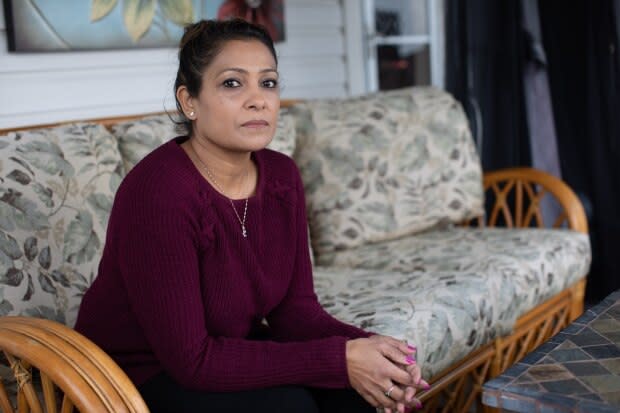Number of trials postponed in B.C. Supreme Court hit all-time high in 2019
Romika Reddy's attempt to get a better settlement from ICBC has hit a snag in B.C. Supreme Court due to too many cases like hers and too few judges to hear them.
Last year, a record 140 B.C. Supreme Court trials across the province were postponed compared to only 33 the year before. The majority of them were ICBC cases.
In October, when Reddy and her lawyer showed up at court — among a horde of others also there to fight ICBC — the 25-year-old's trial was adjourned until June, at the earliest.
"I'm having a really hard time for a long time and then thinking it's going to be over but then it's not. It's very discouraging," said Reddy, who hasn't been able to work since the crash due to lingering pain from soft tissue injuries.
In July 2016, while driving home from work, Reddy's Nissan Sentra was T-boned on the driver's side by a pickup truck near the intersection of 64th Avenue and 120th Street in Surrey.
ICBC, she says, offered her $55,000 to settle the claim but Reddy opted to hire a lawyer and go to court for a better deal.
Now she has no idea when her case will be heard or when she might be compensated for her injuries and losses.

'Lame excuse'
In the three and a half years since the crash, Reddy has been forced to live with her mother and a younger sister at her mother's Surrey home.
It's discouraging, she says, because she should be working to become independent and not be a burden on her family.
At most, Reddy says she can manage a couple of hours at a time working as a receptionist at a local seniors home before her back pain becomes too much.
"It's just not realistic to live off a couple hundred bucks for a month or two," Reddy said.
Her mother Anita Reddy says, "not having judges is a lame excuse."
The B.C. Supreme Court is currently seven judges short of its legislated complement of 90.
Reddy says her daughter's case wouldn't be tied up in court waiting for a new trial date if ICBC offered fair settlements.

Impact on due process
The Trial Lawyers Association of B.C. says the combination of "unreasonable ICBC settlement offers" and too few judges to hear cases causes due process to grind to a halt.
Most of the blame for delays though lies with ICBC, says association president John Rice, who maintains that over the past year the insurance corporation has implemented a "strategy" to make low offers.
"It puts injured British Columbians in a really crummy position," Rice said.
People are forced to decide whether to take the offer because they are financially desperate, or go to trial, he says.
Recent ICBC offers have pushed more cases to trial and put a strain on the legal system, Rice added.
"We need more judicial appointments, but that won't come close to fixing this problem with the scope of cases being pushed to trial by ICBC," he said.

Less than 1 per cent to trial
ICBC says last year, 99.4 per cent of all accident claims were settled without going to trial.
Spokesperson Brent Shearer says only 0.6 per cent of cases actually went before a judge.
On the other hand, from March 2017 to December 2019, Shearer said the monetary demands made by lawyers increased by nearly 40 per cent.
"We're paying 25 per cent more in settlements than three years ago and it's still not enough," Shearer said.
It's estimated more than half a billion dollars was paid last year in legal fees to plaintiff law firms by ICBC.
The cost of injury claims is a primary reason insurance rates increase every year, according to Shearer.

Eager for resolution
Romika Reddy isn't happy with ICBC or the court system.
ICBC offers, she says, need to be more realistic and the federal government needs to appoint more justices.
"At the end of the day, it's people's lives they're completely changing over something that's not their fault," Reddy said.
CBC Vancouver's Impact Team investigates and reports on stories that impact people in their local community and strives to hold individuals, institutions and organizations to account. If you have a story for us, email impact@cbc.ca.


